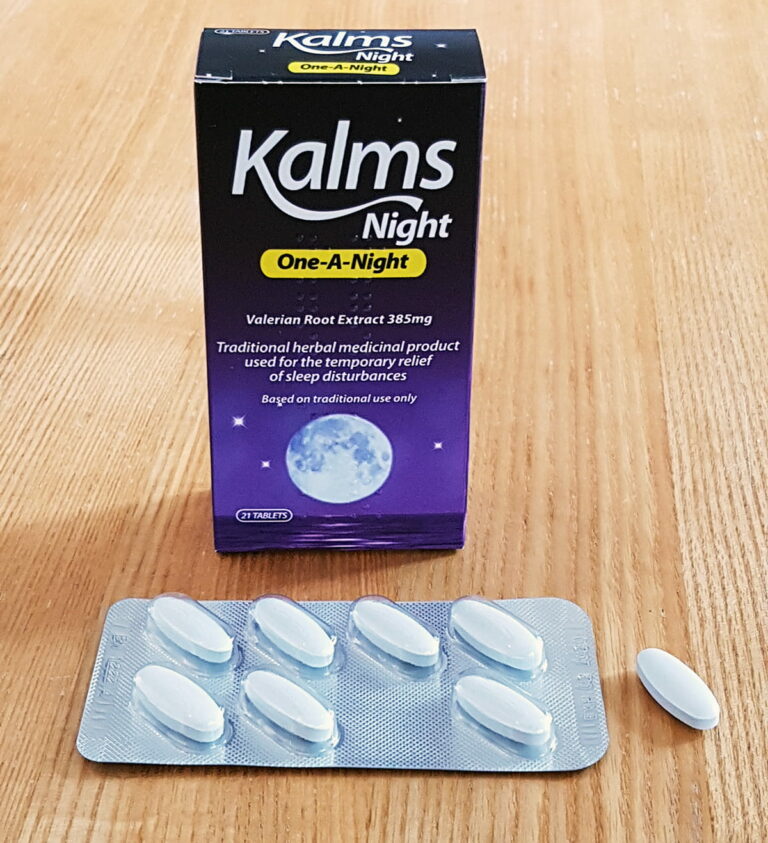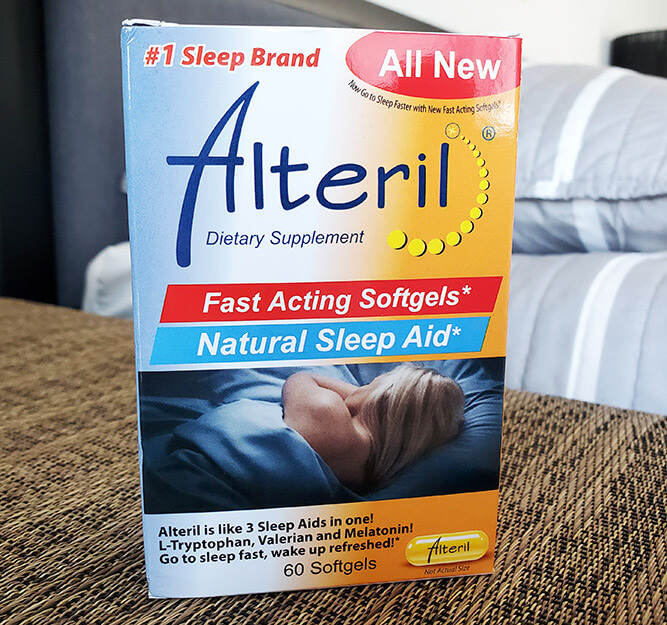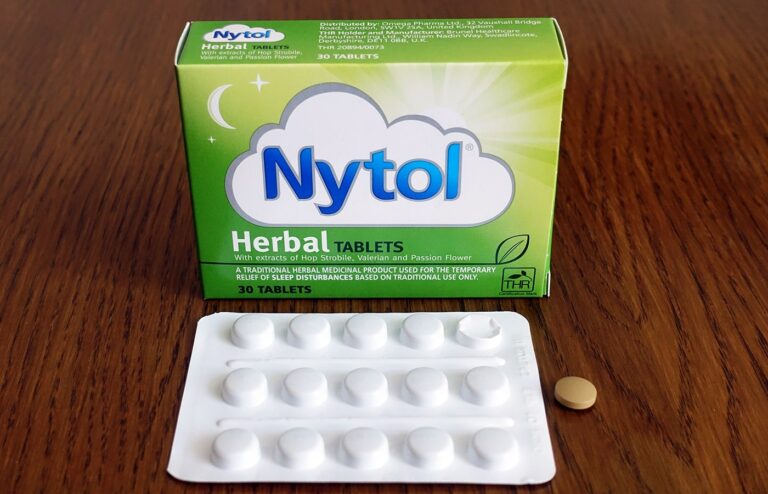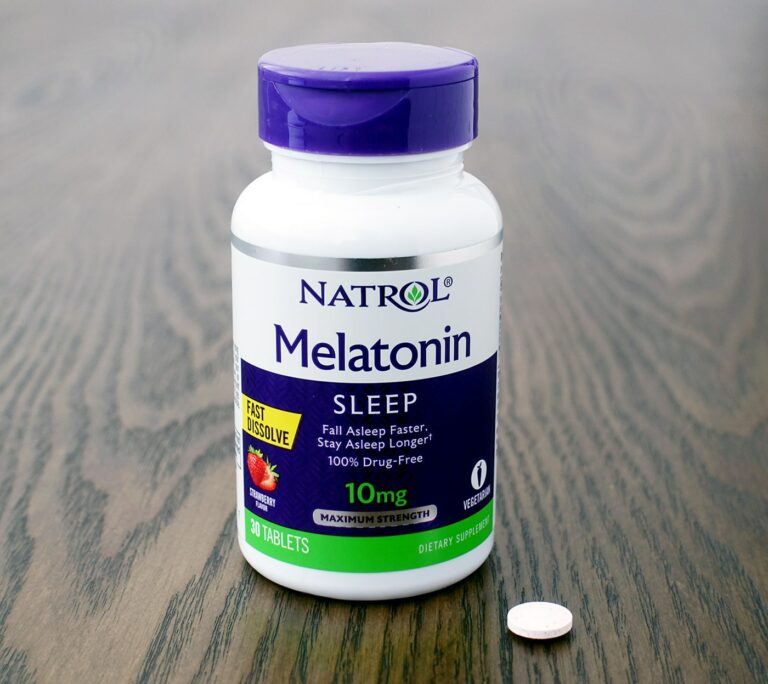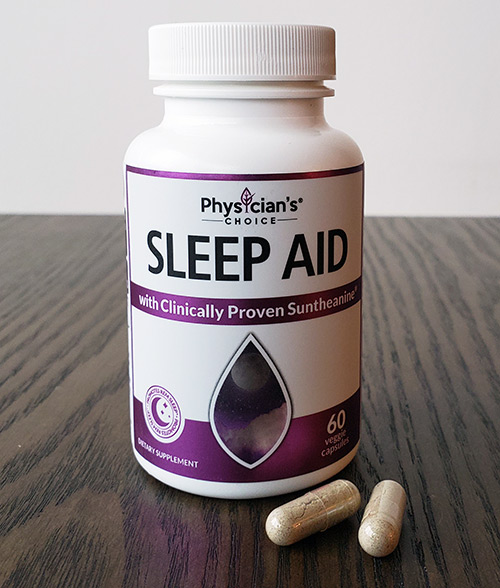
Disclosure: This review is based on my personal experience of Physician’s choice, and you may have a different experience. Please discuss taking any new sleep aid with your doctor rather than only relying on online sources.
Updates: I first wrote this article in 2019. In July 2024, I edited it to say it’s no longer available on Amazon, which is where I bought mine.
For the last week, I’ve taken the Physician’s Choice sleep aid every night. I haven’t been sleeping well again recently, so I thought it was a good opportunity to try a new sleep aid.
It’s an interesting one as it contains a mix of melatonin, chamomile, and valerian. These ingredients crop up time and time again in different sleep aids, but not always together. It also contains vitamin B6, which I haven’t seen in as many sleep aids.
In addition, it’s the first sleep aid I’ve taken which contains Suntheanine. This is a patented form of L-Theanine that’s derived from green tea and is apparently included by the manufacturer to help promote relaxation.
In this review, I’ll describe my experience taking Physician’s Choice. I know that melatonin typically works for me, so I was curious to see if the additional ingredients made any noticeable difference on top of it.
My experience
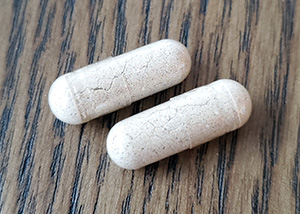
Valerian sleep aids are sometimes unpleasantly pungent, but the capsule did a good job of keeping the smell out of my nostrils in this case.
The instructions tell you to take two capsules 30 to 60 minutes before going to bed. They are quite large because of the ingredients included, so I needed to wash them down with a good gulp of water.
Each night I took them, I lay in bed reading to see if there was a discernible sedative effect. This is a tricky point to measure objectively when you consider the placebo effect and my previous positive experience with melatonin. Still, I find it interesting to see if I can notice anything when I first try a new sleep aid.
I do think I was able to sense a mild feeling of relaxation while reading on the nights I took it. I didn’t exactly feel my eyes drooping, nor did I fall asleep with the light on and wake up with my book still in my hands. However, I felt ready to turn out the light and go to sleep around 40-60 minutes after taking it.
Mixed results
Compared to the week before, I felt like I slept really well on one night during the week I took the sleep aid, and reasonably well on four others. But there were two nights when I still didn’t get as much sleep as I feel I need.
Interestingly, the best night was on the last night of my week long test, which made me wonder if the placebo effect wasn’t playing much of a role after all.
An interesting point I noticed was that even when I woke in the night, I was able to fall asleep again quite quickly on the five better nights. This is sometimes an issue for me, and it was notable that I didn’t get up to have a cup of tea in the night all week.
I was also keen to see if my Fitbit Versa 2 sleep tracker data reflected the suggestion on the packaging that the sleep aid “promotes REM sleep” (though they add the caveat that the statement hasn’t been evaluated by the Food and Drugs Administration).
I know that personal sleep trackers aren’t 100% accurate, but it was still interesting that the percentage of time I spent in the REM stage was good compared to my usual average. I’ll take that result with a pinch of salt, but the data looked positive.
No noticeable side effects for me
For me personally, there were no noticeable side effects. With over the counter sleep aids containing antihistamines, I often get a dry mouth after a couple of days, and sometimes I have vivid dreams when I take melatonin. So as far as I could tell, I seemed to tolerate Physician’s Choice well.
This is just my experience though, and you might react differently to one or more of the ingredients.
Would I take Physician’s Choice again?
I’ve had the same positive effect from sleep aids that contain just the melatonin content, so I would probably be more tempted to stick with those, especially as they are smaller and easier to swallow.
However, I’ll keep the bottle and plan to try them again in the future if my sleep tracker data starts showing that I’m getting less REM sleep than usual. It strikes me that it would be an interesting experiment to see what effect it might have.
Further information
Ingredients
Please keep in mind that I bought it in 2019, but the manufacturer may change the ingredients.
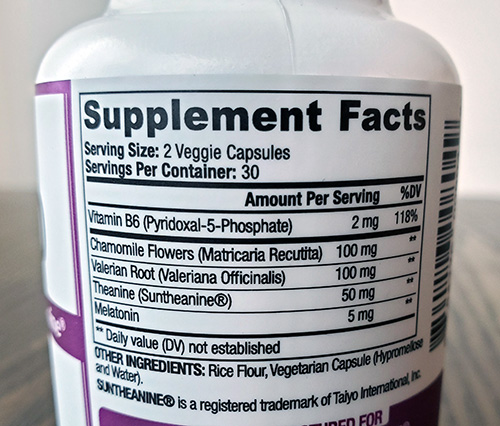
The label on the bottle I bought lists these active ingredients:
- Vitamin B6 (Pyridoxal-5-Phosphate) 2mg
- Chamomile flowers (Matricaria Recutita) 100mg
- Valerian root (Valeriana Officinalis) 100mg
- Theanine (Suntheanine®) 50mg
- Melatonin 5mg
The other ingredients listed are:
- Rice flour
- Vegetarian capsule (hypromellose and water)
Safety considerations
The box I bought didn’t contain an information leaflet and there were no safety warnings or potential side effects on the label other than to keep it out of the reach of children and not to use it if the safety seal is damaged or broken.
However, it’s important to note that the lack of extensive warnings on the packaging doesn’t mean the product is safe for everyone. Different people can react differently to supplements, so I think it’s a good idea to consult a healthcare professional before trying any new sleep aid, including this one.
They can provide personalised advice based on your individual health status, current medications, and any underlying conditions you may have.
What others say
In October 2021, there were more than 4300 customer reviews on Amazon.com with an overall rating of 4.1/5.
57% were five stars, so there are a lot of people who felt it worked well. 9% were one star reviews though, with most saying it just didn’t work for them.
There were also more than 1600 customer ratings on Walmart when I checked, with a combined rating of 4.8/5 stars. And as is often the case with over the counter sleeping pills, some say it works really well while others say it did nothing for them.
When I last checked, in July 2024, it wasn’t available on Amazon or Walmart though.
Further reading
For more about the Physician’s Choice company itself, you can see customer feedback on the Trustpilot website.
If you’d like to find out more about the company that holds the trademark for Suntheanine, and their explanation for how it’s produced, have a look at the Taiyo International website (not a paid link).

